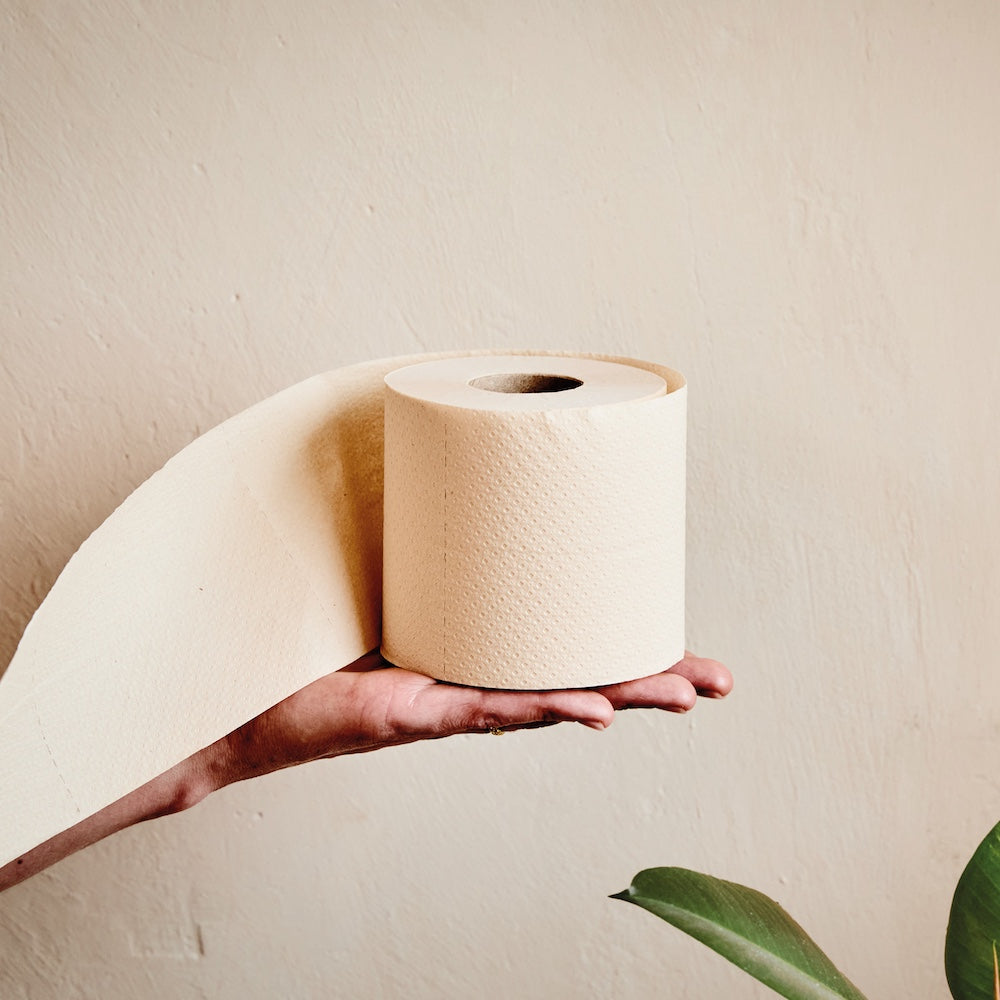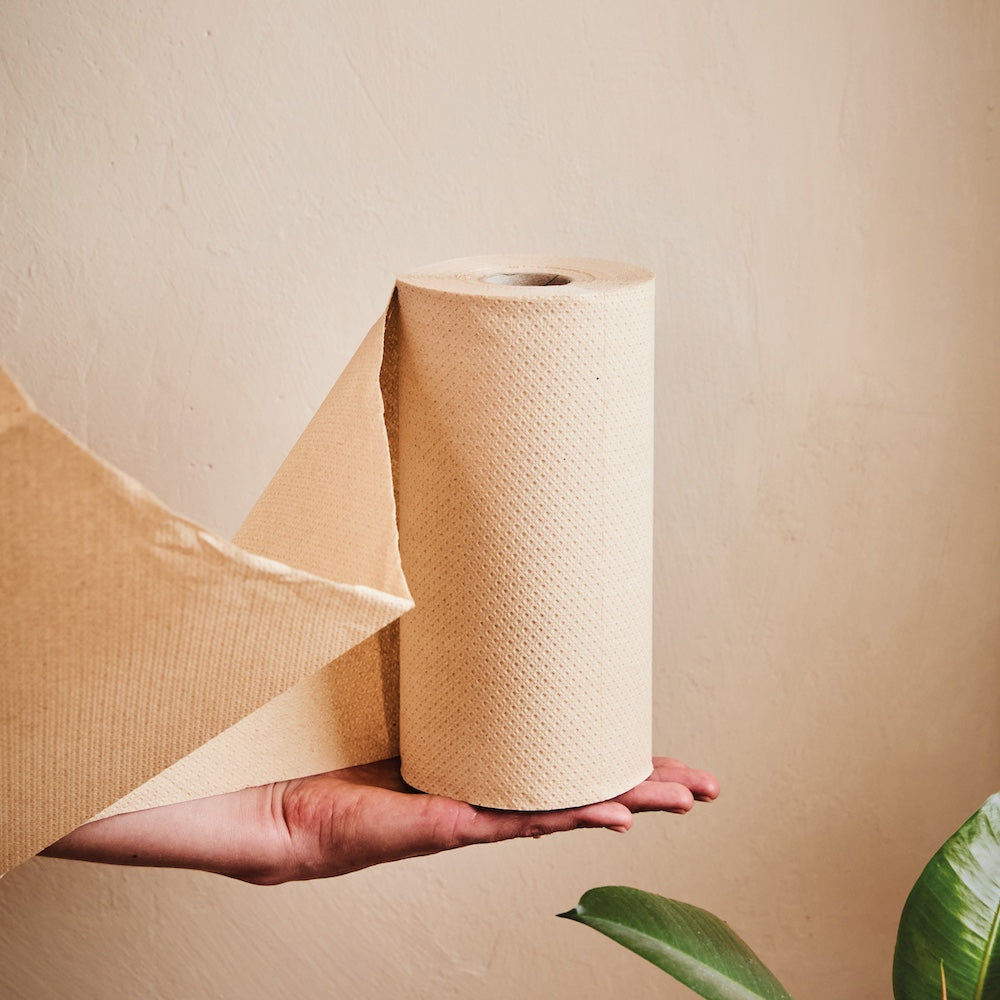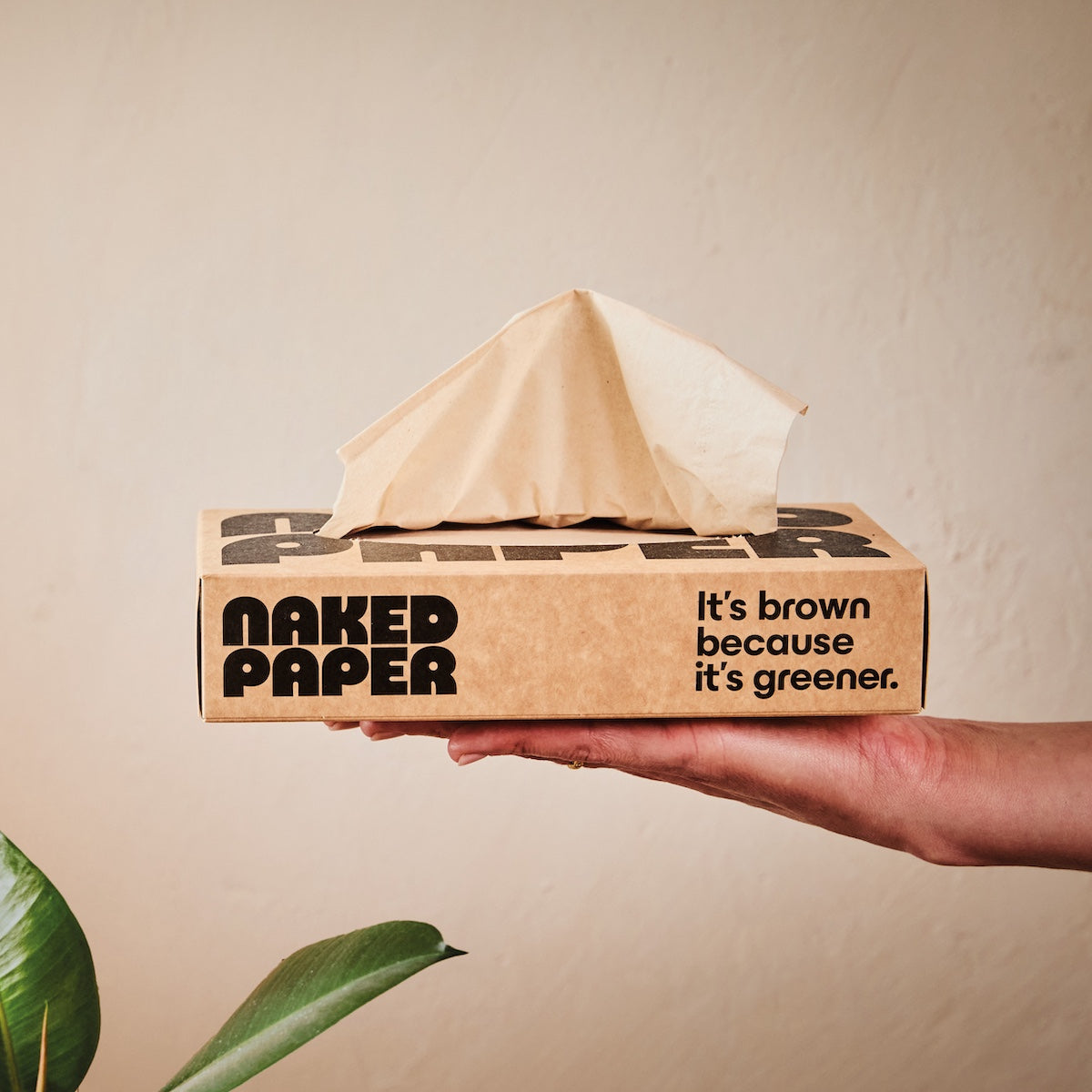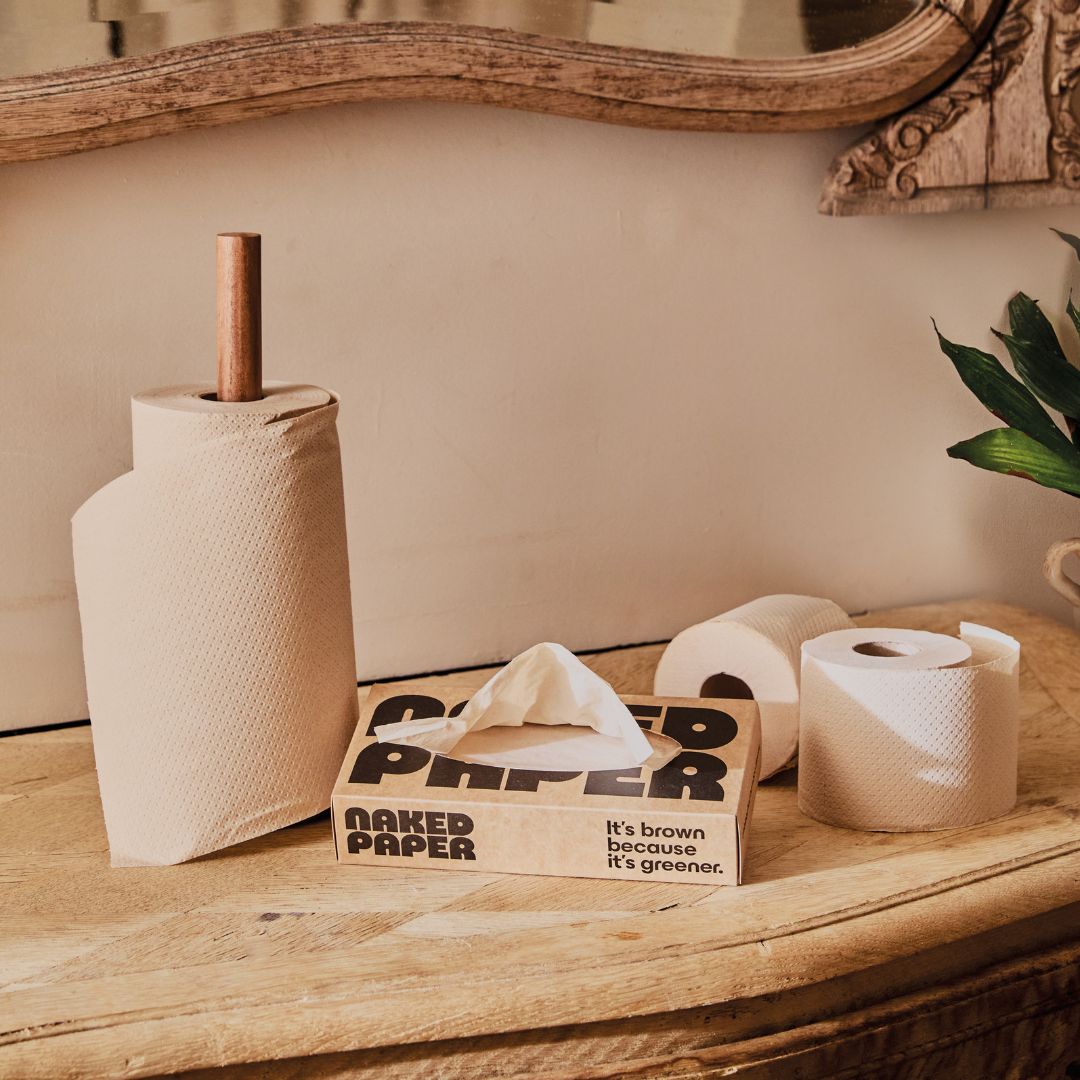Fossil fuels are still the bottom line

Everyday choices add up. Whether it's the food we put on the table, the fuel that heats our home, or the places we go on holiday, we can all make choices that lead to less pollution and a more sustainable pace of life.
As manufacturers, the weight of our choice is even more significant. At Naked Paper we’re proud of our soft, absorbent tissue, made from FSC-certified bamboo or recycled packaging materials, and we’re incredibly proud of the donations that go to our charity partners Just a Drop.
But there's so much more to the story than raw materials and charity donations. With the climate changing, and the planet’s resources stretched thin, we believe all manufacturers need to take a deep breath, and step away from fossil fuels.
In this blog, we'll explore the biggest choice we’ve made as a company, switching to fossil-fuel-free manufacturing, and why most brands shy away from this challenge.

Beyond raw materials
It's easy to understand why most sustainable brands focus on materials. The raw “stuff” you use to make your products and packaging are visible, tangible ways to reduce environmental impact. Type “environmentally friendly” into your favourite store front and you’ll see endless products with green packaging, no plastic, and recycled raw materials.
But this focus on the raw materials in the box often stops short of addressing the biggest, most challenging part of the process, the power that brings it all together.
Many manufacturers rely on fossil fuels to power their factories, heat the air and water that they use, and run their machinery. If they’re making tissue products, most of the energy they use will go into making heat, specifically the hot air that runs through the giant rollers that dry tissue from wet pulp into smooth sheets.
So where does all this hot air come from? In the case of most tissue manufacturers, the answer lies in the natural gas that fires their furnaces. We don’t see this natural gas in the final roll of toilet paper, but as a fossil fuel, it’s still contributing to climate change, and if we overlook it we’re missing the full picture.

Why are so many companies still using fossil fuels?
At Naked Paper, we often point out that we don’t use natural gas to power our furnaces. Instead we make heat from local, renewable sources of biofuel, and we use a patented system in our furnaces to ensure that we use this heat efficiently. As a result, our tissue products have a low carbon footprint, even compared to other eco brands.
We’re showing that it’s possible to build a successful business while cutting down and cutting out fossil fuels, so why aren’t other brands doing the same thing?
As with a lot of things in business, the bottom line is cost - most brands don’t change their manufacturing processes because it’s expensive. Our factory, for example, has installed 8000 solar panels on site that generate electricity from the abundant Spanish sunshine. But rethinking power supply in this way requires considerable outlay in the short-term, with the benefits only becoming apparent with time.
For most businesses, especially in competitive industries like paper products, this is a financial burden they’re not able or willing to bear. It’s easier - and much cheaper - to make a smaller change like switching to recycled materials, or designing compostable packaging, than to overhaul the entire production process.

Why isn't offsetting as good as cutting emissions?
You might wonder, if investing in renewable manufacturing is so expensive, why not just use carbon offsetting? After all, that’s the option that many eco companies go for, “offsetting” the emissions they generate by burning fossil fuels by investing in projects like tree planting or building renewable energy infrastructure in other parts of the world.
While this might seem like a reasonable compromise, it’s a flawed solution. In fact, it’s hardly a solution at all.
First, offsetting allows companies to avoid addressing their own emissions. Rather than reducing the fossil fuels they produce, they simply "pay off" their pollution by investing in projects that absorb or reduce carbon elsewhere. This approach doesn’t solve the root of the problem - it just shifts responsibility.
Second, offsetting can be unreliable, to put it very mildly! While tree-planting initiatives, for example, are often touted as a way to sequester carbon, trees take decades to mature and absorb CO2, and they’re vulnerable to deforestation, fires, and disease. There's no guarantee that the trees planted in the ground today will survive long enough to make a significant impact in twenty years.
Even they did, we don’t have twenty years to get to grips with the climate crisis.
Climate scientists and environmental groups like Greenpeace are growing louder and more clear on this point; offsetting isn’t working, and might be doing more harm than good.
We take these voices seriously. We don’t believe it’s really possible to make “carbon neutral” or “carbon negative” toilet rolls, and so we don’t offset at Naked Paper. We don’t want to "make up" for emissions by planting trees elsewhere - we want to eliminate those emissions at our factory.

The bottom line
Investing in fossil-fuel-free manufacturing isn’t the easiest or the cheapest way to make toilet paper (or kitchen rolls, or tissues…) but we’re more sure than ever that it’s the right way to go.
By powering our production with renewable energy, we’re reducing our carbon footprint where it really counts, and we’re proud to be leading by example. We’re looking forward to seeing more companies take a closer look at their manufacturing processes and take responsibility for the true environmental impact of their products - beyond raw materials and offsetting.
A genuinely low carbon future is possible, and we’re working to put it in your hands every day, in the humble form of a toilet roll!
Want to try the future standard?
Recent blog posts
-
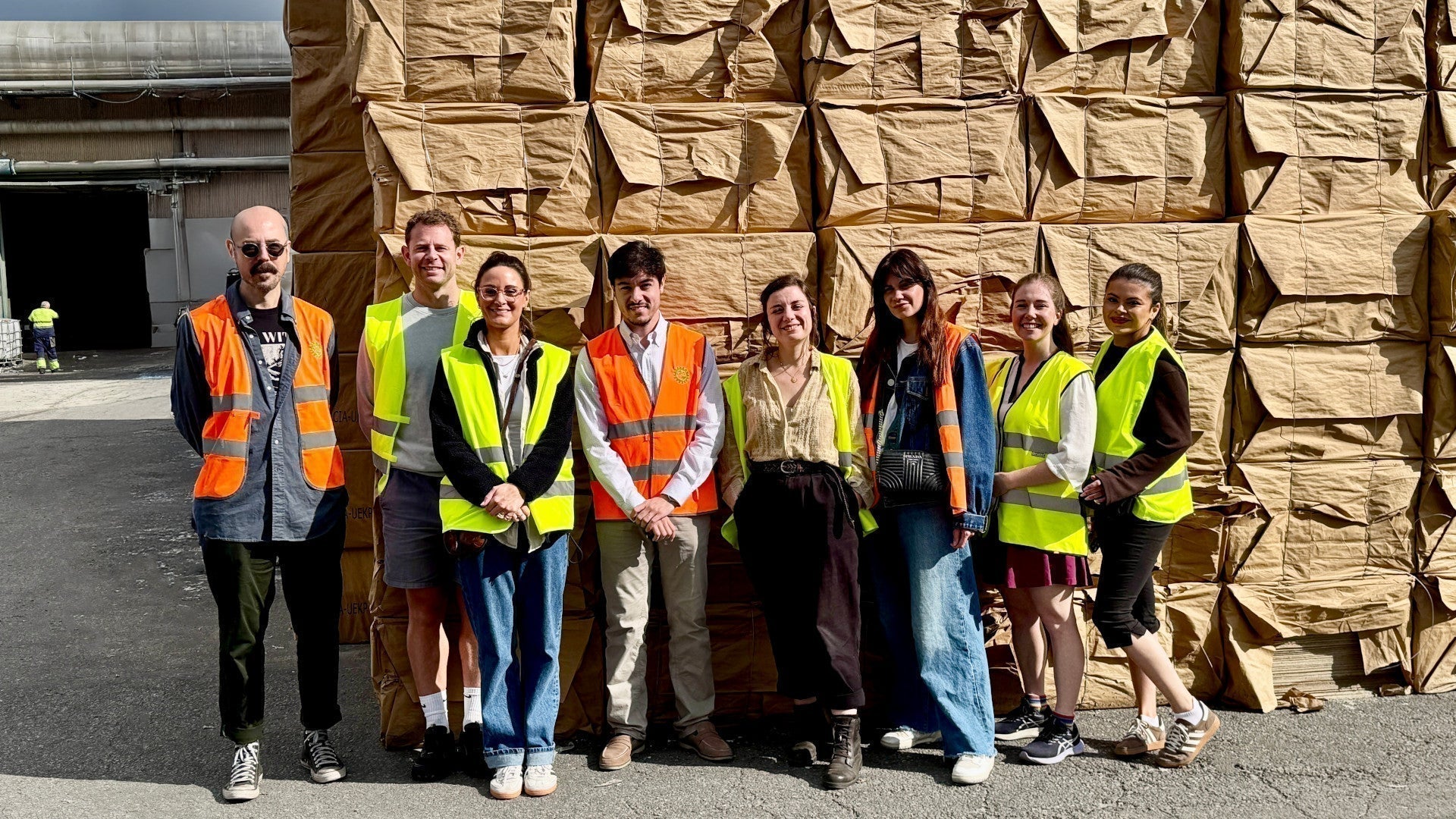
Join our team trip to the factory!
A couple of weeks ago, most of the Naked Paper team packed our bags and headed off to northern Spain to visit the factory where all our soft, sustainable toilet paper, kitchen rolls, and tissues are made. For our founders Tom...
-

Beyond the bog standard: five years of Naked Paper
When we launched Naked Paper five years ago, we expected to stand out. Selling bleach-free, brown toilet paper is a guaranteed conversation starter; we knew people would notice, we just didn’t know if they’d get on board. Companies like Naked Paper...
-

Introducing recycled kitchen roll and tissues
At Naked Paper, we like to think that change can happen in the most everyday parts of life. In fact, the everyday parts of life, like toilet rolls for example, are often the best place to make changes. When daily-use...
